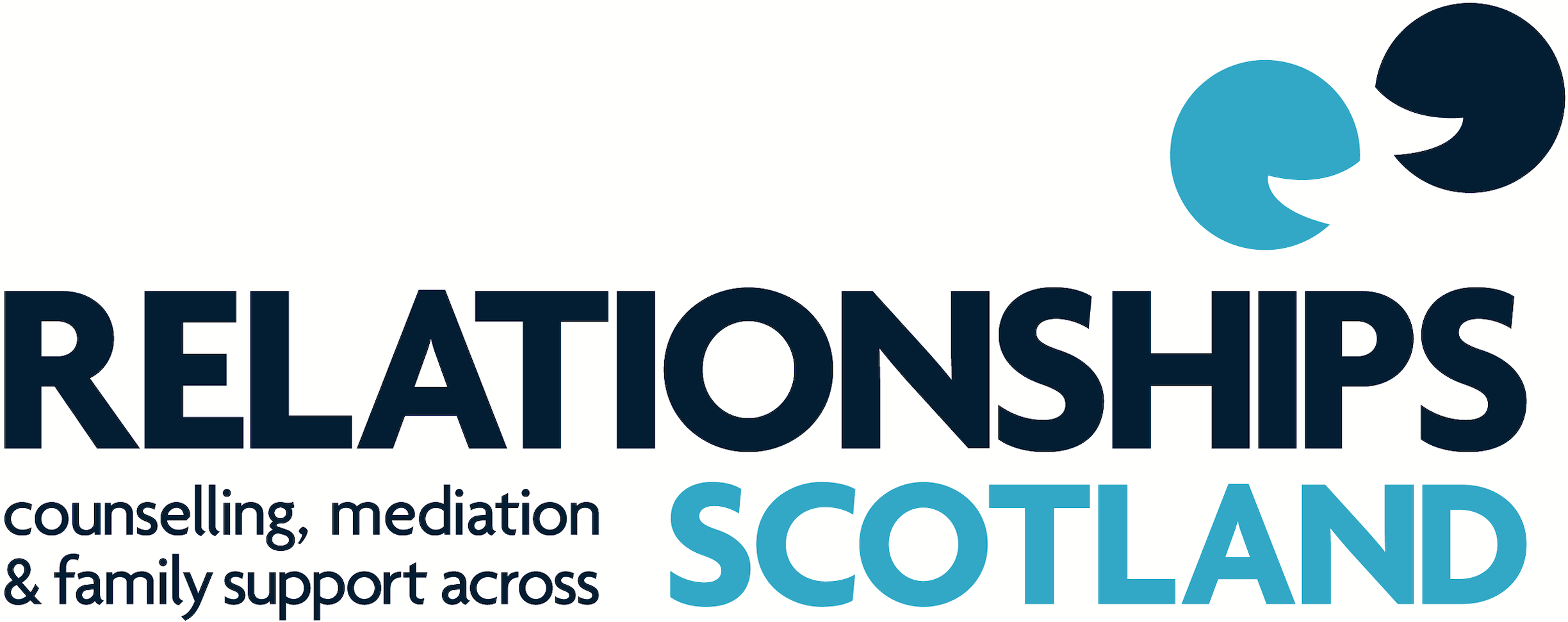
Hearing from children when their parents separate or divorce
Should we be listening to children and young people directly, or hearing their views via their parents? This is a question that exercises the minds of those who work in the family law field and is receiving heightened attention from policy makers in Scotland at the moment.
Does it put pressure on children and young people when we ask them what they think and feel about difficult situations? How easy is it for children to say what they are really thinking and feeling about family issues without them worrying about upsetting one or other parent? Can children really be expected to understand the longer term implications of what they say they want or don’t want?
The law in Scotland[i] says that children and young people should be given an opportunity to express their views, feelings and wishes, and to have their views taken seriously, on any decisions that affect them, including those within the court process. Children also have the right not to express a view. Children need to know that the final decision is not their responsibility, however, and that what ultimately happens may or may not be what they were hoping for.
So how are we best to understand what children need and what a particular child thinks and feels about a family issue that their parents disagree about?
In the context of separation or divorce children can express their views by meeting directly with a specifically trained family mediator, children’s worker or child consultant, a court reporter or the sheriff/judge. They can express their views in writing on a form (an F9 Form) or they can be represented by their own solicitor.
Relationships Scotland has an established process of direct consultation with children within family mediation. Mediators undertake additional training to carry out this work. Even those who are enthusiastic about the benefits, however, recognise the limitations of parental capacity to respond appropriately to feedback from children and age suitability. Over 60% of children whose parents are in mediation with Relationships Scotland are under the age of 8 years.
Discussions in England have raised concerns around age of competency to express views, consent, safeguarding, parental gate keeping, children’s rights versus parental responsibilities and whether there should be a presumption of child inclusion as the norm rather than consultation, as and when parents and the mediator consider this to be appropriate.
Scotland’s current Family Justice Modernisation Strategy includes a focus on the Voice of the Child. Scottish Women’s Aid and Scotland’s Children and Young People’s Commissioner’s Office have conducted research recently on how children affected by domestic abuse can be supported to express their views within the court process.
Relationships Scotland is keen to develop the debate in Scotland on how children’s views can be heard more effectively, especially in private family law cases. Professor Jenn McIntosh, a researcher and child inclusive practitioner from Australia, is presenting a seminar on the Voice of the Child in Separation and Divorce in Edinburgh in June. Professionals from a wide range of agencies will learn about best practice from other parts of the world.
One of the key messages from research is that children want to be involved in decisions that affect them. It is important to listen to what parents, children and young people all have to say about their family situation and to ensure those messages, as well as any developmental needs and safety concerns, are taken in to account.
We invite you to join the debate by responding to our blog.
Rosanne Cubitt
Head of Professional Practice, Relationships Scotland
[i] The Children (Scotland) Act 1995 and the United Nations Convention on the Rights of the Child (UNCRC).

Thanks RS and Rosanne for this event and your article and invitation to respond. The tickets were all sold when I tried to book my place. 🙁
I’d like to comment wearing the hat of a retired child psychiatrist and family therapist, and with a special interest in separating families from long ago and more recently with high conflict families and harmful coercive patterns in families and more widely.
I think you really should have mentioned the issue of how, like any one of us of any age and any maturity, children and their views are influenced by others. If you take children or anyone’s views or feelings without considering what they may have been influenced by, you will make grave mistakes. And, if you don’t take influence into account, you will add even more harm to already stressed out and emotionally harmed children … and, what’s more, that harm will be caused by well-meaning parents and helping professionals who think they’re doing the child a big favour!!
For RS and its experienced FM service and staff, you don’t need anyone else to tell you this: But yes, of course children should be sensitively and appropriately involved when parents separate. Most separating parents – on their own or with some extra help (like FM from RS) – can manage to do that even while they are embroiled in difficult processes themselves. In those families the children are likely to be confident of their own feelings and views, and confident that their parents will listen and explain while the adults make good plans after separating.
We know that what children mostly want is to be involved and heard but not to be responsible for making decisions. Your and everyone’s research and literature tells us this.
In particular they do not want to choose one parent over the other. They want to have a relationship with both. Even if a parent has done stuff, that parent is still their parent, and they will hope that someone can help repair or make safe a continuing relationship with them. Eg http://www.amyjlbaker.com/books/getting-through-my-parents-divorce.html
In not wanting to choose, children are being more sensible than the present dominant culture that increasingly turns the appropriate involvement and voice of children into their being set up to be the chief witness and decision maker between parents in cases where the parents are not able to protect their children from these terrible and harmful responsibilities.
The world knows that every one of us of all ages is influenced – for good or ill – all the time by dozens of people and social pressures around us. At all ages we all need to have good information, space, time and a choice of others to help us think things through. Without that, we cannot sustain our thinking or understanding of what’s going on around us.
Children of any age are by definition not yet mature in their thinking and understanding. So they are even more likely to be influenced by their close family around them, dependent as they are on those primary attachments. This is even more likely when the distress and high emotion and conflict of separation happens. And when emotions and conflict run high, then they are often sitting ducks for parents (in those cases of highest conflict) to consciously or unconsciously influence them to side with them.
So it is quite astonishing when we talk of isolating the children in high conflict families to ask them their views – even relying on administering a standardised questionnaire to do it!! – and then to assume that their expressed views and feelings are somehow pure, pristine and to be taken as objective fact and informed judgement when there has been no consideration at all for what may have influenced their views and feelings. Or more likely, when one side is pleased to hear what the child says, because that is what they have been wanting to hear the child say because it echoes their views and not the other side’s views. And children are mostly not daft and will know well – or be desperate to keep in with – whoever it is that wants to hear what.
We know how in families and in other groups coercive control and “Undue Influence” operates on adults (let alone kids) to enslave them to a faulty and damaging view of the emotional abuser. See Alexandra Stein’s recent book (link below to a review of it): Terror, Love and Brainwashing, about how coercive relationships create disorganised attachment patterns that ensure the submission to the coercion, the entrapment and the destruction of the victim’s capacity to think properly (while simultaneously obeying the coercer and looking like they’re as happy as Larry to the outside world)
Do we think that a child in high conflict separation is somehow unaffected, rises above, all these conscious or unconscious pressures and processes?!! Of course not!
A few years ago you yourselves at RS ran a workshop with Dr Kirk Weir whose court case experience is internationally regarded as evidence of “The extreme unreliability of children’s ascertainable wishes and feelings” in intractable contact disputes. See his Family Court Journal paper link below
His assessment and international recommendations for these high conflict court cases is to carefully meet the child to assess how they behave with the parent they have said they hate and don’t ever want to have in their lives (a very strange thing for any child to say by the way).
If that’s true even of some severest separation conflict situations, then it behoves us to mention at every opportunity how a child’s voice needs to be heard but properly considered within a broader and skilful assessment of the influences and relationship patterns around them. Please remember to mention this aspect in future Roseanne! Thanks
Nick Child, Edinburgh
Further reading about this can be found here:
> Dr Kirk Weir “Intractable contact disputes: The extreme unreliability of children’s ascertainable wishes and feelings” FCReview: http://www.xm-ecosse.co.uk/Articles/Intractable_Contact_Disputes2011%20Published%20version.pdf
> Undue Influence of all kinds: https://thealienationexperience.org.uk/2016/01/31/learning-about-a-common-enemy/
> Alex Stein book review: https://thealienationexperience.org.uk/2017/04/19/attachment-terror-how-all-harmful-coercion-works/
> Nick Child’s homespun CAMHS approach (many years ago) to less severe separation conflict (without bringing in the voice of the child I’m afraid!): https://thealienationexperience.org.uk/2015/11/30/creating-an-informal-proactive-court/
PS This is so important I’ve based a more colourful blog of my own on it. http://wp.me/p5g5In-1eQ
How about this as a suggested starting point? If a child isn’t competent to withstand cross-examination on the part of one of his parents, without line of sight to the other parent or any social worker the child has ever met before entering the court room, and there are disputed facts, nothing that child says about those facts, or his wishes and feelings in the light of his belief or disbelief of those alleged facts, should be allowed influence the outcome of court proceedings.
That is not to deny psychologists a role, in assessing children as to their competence to testify, and preparing them for the ordeal, but not extending to coaching them as to the content of their evidence.
The damage to children of a system that incentivises the coaching of children by an alienating parent to make false allegations against the other parent, is greater than the damage that would be inflicted by allowing a fair system of tested evidence, or a system that risked occasional child abuse.
I believe that the most serious child abuse, in terms of the number of victims, is the deprivation of children of their natural parents in situations in which one parent wants this, and is already more powerful, and is further empowered.
Parliamentary candidate in North Cornwall
2017 Christian Peoples Alliance
2015 Let every child have both parents
http://JohnAllman.UK